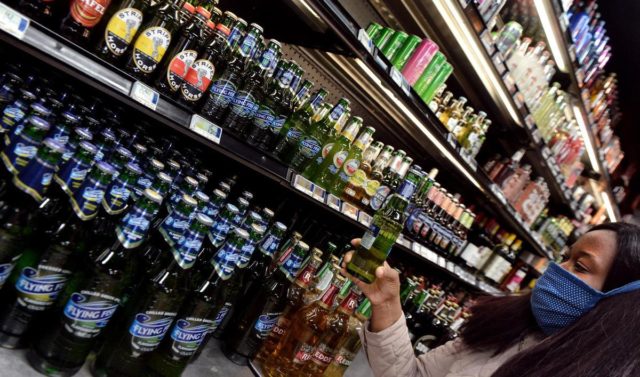AN INDEPENDENT evaluation of a SA Medical Research Council (SAMRC) report on which the Covid-19 ban on alcohol sales is based, has identified several limitations which together make the research uncertain, an alcohol industry coalition said on Sunday.
An “Impact of alcohol on health services in South Africa” report was presented by the SAMRC’s alcohol, tobacco, and other drug research unit to the government’s National Coronavirus Command Council (NCCC) on July 15, the coalition said in a statement.
It modelled and estimated the number of trauma unit hospitalisations following a hypothetical ban on alcohol sales during the Covid-19 Level 3 lockdown, suggesting a significant link between hospitalisation and alcohol sales in South Africa.
Members of the South African alcohol industry commissioned an independent review of the report and its data inputs. While the report argued that a significant public health improvement would result from an alcohol ban, the review identified a number of study design and statistical modelling limitations, due to the lack of complete data presented, which together made the robustness of its research uncertain, the coalition said.
The report indicated that an alcohol ban would directly reduce hospitalisations in South Africa to free up capacity for Covid-19 treatment, representing a total reduction of 49 550 cases over an eight-week period. This total reduction in trauma unit cases would also be accompanied by a reduction in hospital overcrowding, which may be related to increased risk of coronavirus transmission between patients and emergency room staff, as well as fewer resources, available staff, and hospital beds for coronavirus patients.
“The review identified that the incomplete nature of the data used in the modelling makes it difficult to accurately determine the extent of the link between trauma admissions and alcohol abuse. The main motive for this finding is that the reason for each trauma is not captured by the hospitalisation data provided in the report.
“There is no information on whether the trauma cases resulted from alcohol use, or from any other cause. The model, therefore, may be able to predict the total number of potential trauma cases prevented; however, it remains uncertain as to the extent of the relationship between alcohol consumption and the number of trauma admissions in South African hospitals,” the coalition said.
Importantly, the estimate for the number of trauma unit presentations per year was based on extrapolations from data two decades old. The initial estimate used for modelling the potential number of reduced trauma unit presentations was based on data from roughly 356 secondary and tertiary public hospitals in 1999.
To calculate the number of trauma unit presentations across the same hospital type in 2020, the population growth between 1999 and 2019 was used as a multiplier. However, the review found it was not apparent whether the number of secondary and tertiary public hospitals operating was accounted for, as a substantial increase or decrease in the number of operating hospitals, notwithstanding the capacity of each hospital, could impact the number of cases admitted.
“The review adds that incomplete data makes it difficult to isolate or model separately the impact of alcohol-related trauma presentations among multiple factors contributing to hospitalisation rates during and after lockdown; none of which are recorded at hospitals and available for estimating cause-related reductions.
“Although the estimates per week for trauma presentations before lockdown and in Level 3 (80 percent of pre-lockdown trauma presentations) may be estimated using actual hospital-based data, it is not clear what evidence guided the expert opinion that 50 percent of trauma presentations were alcohol-related.
“In fact, the subsequent estimated multiplier is based on expert opinion as well. The study itself recognises that a reduced number of trauma presentations may be related to more restrictions on movement, work, exercise, and fewer vehicles on the road – all factors that exist at the end of lockdown and present challenges in modelling separately,” the coalition said.
The coalition acknowledged that the need to control the spread of coronavirus was an absolute imperative. However, given the current data available, the extent of a causal relationship between alcohol sales and trauma case presentations was difficult to isolate.
Representing the South African alcohol industry, Sibani Mngadi said in the statement, “We would encourage the government to take note of this independent review of the SAMRC report and of the limitations in the data reported, and engage with our industry to find an urgent solution to lifting the suspension on alcohol sales. This will enable the industry to return to some form of operational normality.”
The sector was responsible for about one million people in the value chain and provided the means of a livelihood for many thousands of small business owners, many of which were women, which also operated in townships and rural areas. The suspension of alcohol sales had rendered many thousands of people in the entire value chain destitute and without an ability to continue earning a living.
The industry believed that urgent action from the NCCC would enable a rapid restart of the sector, allowing thousands of jobs to be saved and the industry to be positioned to continue contributing to the fiscus by way of taxation, VAT and excise, among other payments, the coalition said.
– African News Agency (ANA)








